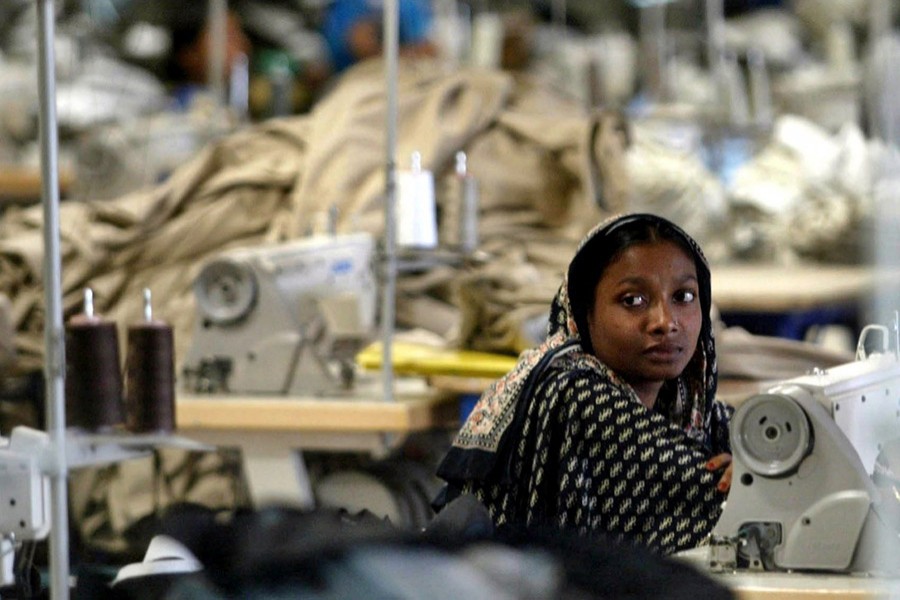European Commission warns BD again of improving labour situation before GSP goes
It's better now and the govt is doing more to make it even better, state minister says

Published :
Updated :

The European Commission has reiterated its concern over the labour rights situation mainly in respect of freedom of association and successful implementation of the 'Compact' in the readymade garment sector of Bangladesh.
It also warned of taking steps, including launching investigation, to improve the situation ahead of withdrawal of the existing trade facility under the Generalised System of Preference (GSP).
The EC expressed the concern and issued the warning in its report on the effects of GSP and the special incentive arrangement for sustainable development and good governance (GSP+) covering 2016-17 to the European parliament and the council.
The report, published on January 19 and also made available at the EC's official website, also raised concern about the declining human and labour rights situations in Cambodia.
"In Bangladesh, the Commission has raised concerns regarding labour rights, in particular freedom of association and the implementation of the joint initiative known as the Compact for Continuous Improvements in Labour Rights and Factory Safety in the Ready-Made Garment and Knitwear Industry in Bangladesh," it said.
The EU in particular raised the alignment of the Bangladesh Labour Act (BLA) and the Export Processing Zone (EPZ) Act with the ILO labour rights conventions as one of the priority actions.
Following declining human and labour rights situations in Bangladesh and Cambodia, the commission engaged more actively with these two countries and involved relevant stakeholders like NGOs, CSOs, international organisations, social partners, and businesses.
Earlier in March 2017, the EC warned Bangladesh of temporary withdrawal of the preferential trade facility if it fails to address labour rights issues in line with the ILO recommendations and comes up with a proper plan of action in this regard within a certain timeframe.
Regarding Bangladesh, the report said, EBA (Everything But Arms) has contributed to its socio-economic development by generating millions of employment opportunities in the readymade garment industry where the large majority of workers are women.
This must, however, go hand-in-hand with the respect of fundamental human and labour rights, in particular freedom of association, in order to contribute to increased prosperity and decent work, the report said, adding: "The EU needs to see real and sustained improvements if further steps are to be avoided."
When asked, State Minister for Labour Mujibul Haque Chunnu said the labour rights situation has improved and better now, and the government has also formed a new wage board to review the wages of the garment workers for the betterment of their living standard.
Steps have been taken to address ILO recommendations, including amendments to the labour law, he said. "We have sent the drafts of amended labour law to the ILO within the set deadline."
Echoing the state minister, Bangladesh Garment Manufacturers and Exporters Association (BGMEA) vice president Mahmud Hasan Khan said the number of trade unions in the sector has also significantly increased in recent years.
The government formed a tripartite consultative committee to address labour issues, he said, adding the BGMEA also holds regular meetings with the rights organisations in this regard.
In 2016, the largest share of EBA imports came from Bangladesh - 66 per cent worth 15.61 billion euro, followed by Cambodia - 18 per cent, according to the EC report.
The EC's latest warning has come after suspension of Bangladesh's GSP benefit by the US government in June 2013.
After the US suspension, the EU earlier reminded Bangladesh authorities about taking necessary measures for ensuring workplace safety and labour rights to sustain its GSP benefit in the EU markets.
The EU is the largest market of Bangladeshi products those enjoy duty-free facility under the EBA. Bangladesh fetched US$17.75 billion from apparel exports to the EU in last fiscal year which is 63.06 per cent of total RMG exports, according to BGMEA data.
munni_fe@yahoo.com


 For all latest news, follow The Financial Express Google News channel.
For all latest news, follow The Financial Express Google News channel.